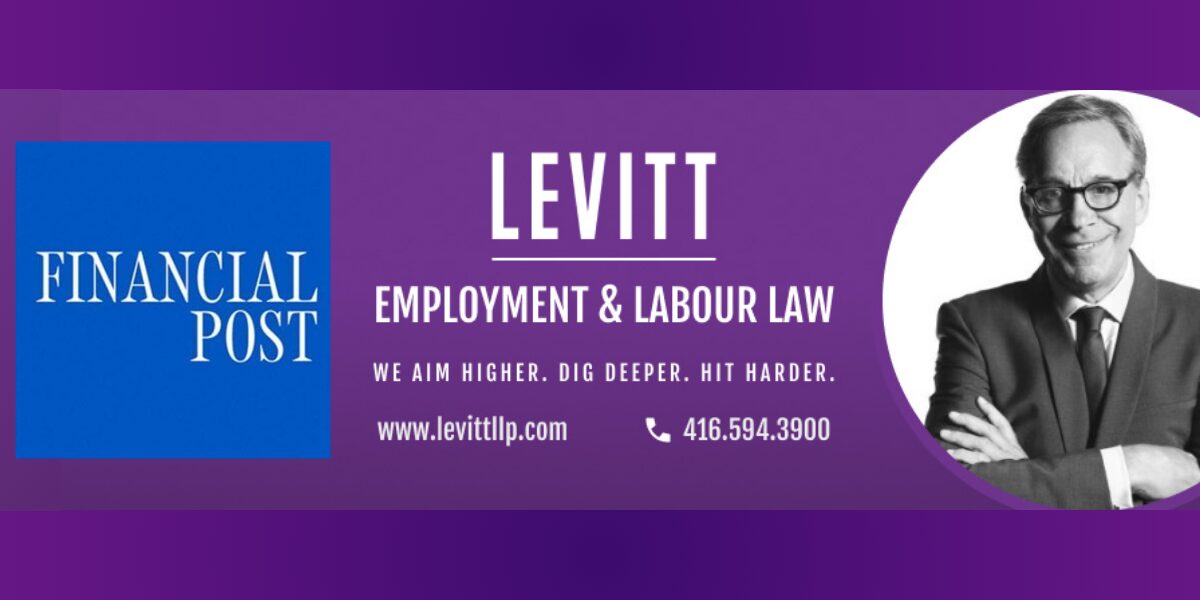By Howard Levitt and Peter Carey
DEI promotes the exact opposite of diversity, equity and inclusion
As most of our readers know, DEI stands for Diversity, Equity and Inclusion.
For about five to seven years now, it has been the hiring philosophy of major corporations and governments, as well as institutions of higher learning.
As read, it is a comforting phrase. After all what could be better when hiring than promoting diversity, being inclusive and being fair. It just sounds so darn good!
Why then are so many organizations turning away from DEI en masse?
It is common knowledge that Donald Trump has outlawed such hiring practices in the United States federal government and is encouraging private industry to follow suit. However, many companies abandoned DEI long before Trump was elected. For example, Meta Platforms Inc., Amazon.com Inc., Deere & Co., McDonald’s Corp., Boeing Co. and Lowe’s Cos. Inc. all eliminated their DEI programs before Trump. Why has this happened?
It has happened because DEI promotes the exact opposite of diversity, equity and inclusion. Any student of Orwell will understand that the labels given to politically motivated ideas are usually the exact opposite of what those ideas are really about. (The Ministry of Truth anyone?)
DEI was pushed by the left. It is premised on the Marxist concept that individuals should not have equal opportunity, but instead must have equal outcome. This is a bizarre notion that has many negative implications.
For example, if 20 per cent of the population is of a certain ethnicity, DEI mandates that 20 per cent of any particular job function or profession must “be representative” and contain 20 per cent of that ethnicity. Likewise for sexual preference, religious belief and every other divisive category in our society.
Far from being inclusive, DEI separates and divides the population based on these characteristics.
Not exactly inclusive, is it?
Also, in order to track the “progress” of the DEI program, you need metrics. That means you have to know the colour, creed, sexual preference, and any other distinguishing characteristic you can think of, for every individual. One would think that requiring this sort of disclosure from potential employees violates the Ontario Human Rights Code, yet we have attended numerous seminars where this is exactly what the advocates of DEI want.
As a result, instead the hiring process being about character and merit and blind to prohibited grounds of discrimination, it becomes all about ethnicity, colour, race, religion, etc.
Another associated evil is the notion that some ethnicities are overrepresented in certain occupations. According to DEI, there are too many Asian doctors and too many Jewish lawyers. Therefore, you must skew the admittance to those professions to disallow Asians and Jews in favour of others who may not be as meritorious but are not part of the “over represented” group.
It is an inherently racist and unfair philosophy.
Most importantly, merit figures only tangentially, if at all, in DEI programs. It is noteworthy that no professional sports leagues have embraced DEI. How could they? The point of professional sports is to win, and in order to do that you need the best players. The NBA is arguably not diverse at all. Is this due to systemic racism? Hardly. It has to do with a number of factors, including cultural interest, as well as just being tall!
I know that when I am being wheeled into the operating room for neurosurgery, I want the very best surgeon available, not someone who is sort of OK but had a certain sexual preference that made the difference and got them into medical school.
DEI isn’t even good for its supposed beneficiaries. When someone reaches a goal in their life, whether it be as a professional or a captain of industry or in the public service, I am positive that they don’t want to be thought of as the “DEI candidate” but rather as the accomplished and talented individual they are. The stigma of DEI would be hard to shake.
Here is a novel idea: hire people based on their merit and not based on a divisive characteristic.
We have always had a diverse law firm. Not because we set out to have a diverse one; we never think about that. We just hire the best people.
As Martin Luther King Jr. so eloquently put it: judge people on their character.

